2023 NFL Postseason Exec Awards: Patrick Mahomes Gets an MVP Playoff Boost
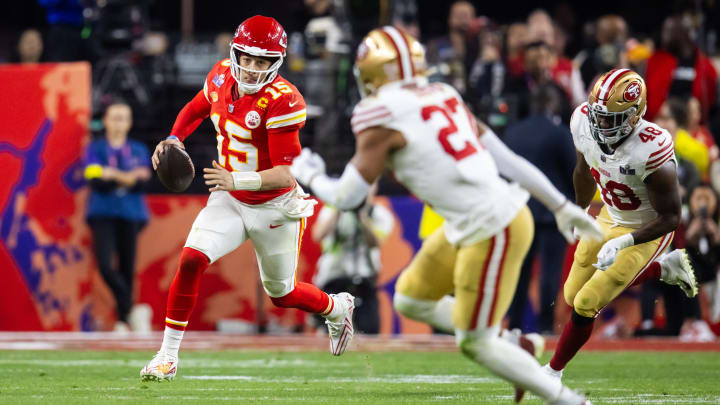
I’ll be honest with this one—I meant to roll this out about a month ago like I usually do.
That’s the time for postseason awards, right when the regular season ends—so that they can be about the regular season and the regular season alone. That just so happened to be the week that both Bill Belichick and Pete Carroll were let go, and Nick Saban retired and, well, running an awards poll got knocked down the list of priorities.
But I still wanted to go through the exercise of getting NFL execs to vote on who the best players, coaches and executives were, so I huddled with my esteemed editor, John Pluym, to come up with a way to make it relevant a month into the offseason. How? Well, we considered the idea of having the awards include playoff performance and decided against that. And that’s really where the conversation got going on the concept we’d pick.
Simply put, I think doing it now gives the executives voting on the awards a lot more context than they otherwise would have. So I sent the ballots out, and while I told the voters not to use postseason performance to determine picks, I said it was totally O.K. to use it as context in choosing winners. In other words, if how Patrick Mahomes or Christian McCaffrey played in the postseason changed your view on their value, have at it.
Did that change much in how the voting would go?
Let’s take a look …
Most Valuable Player
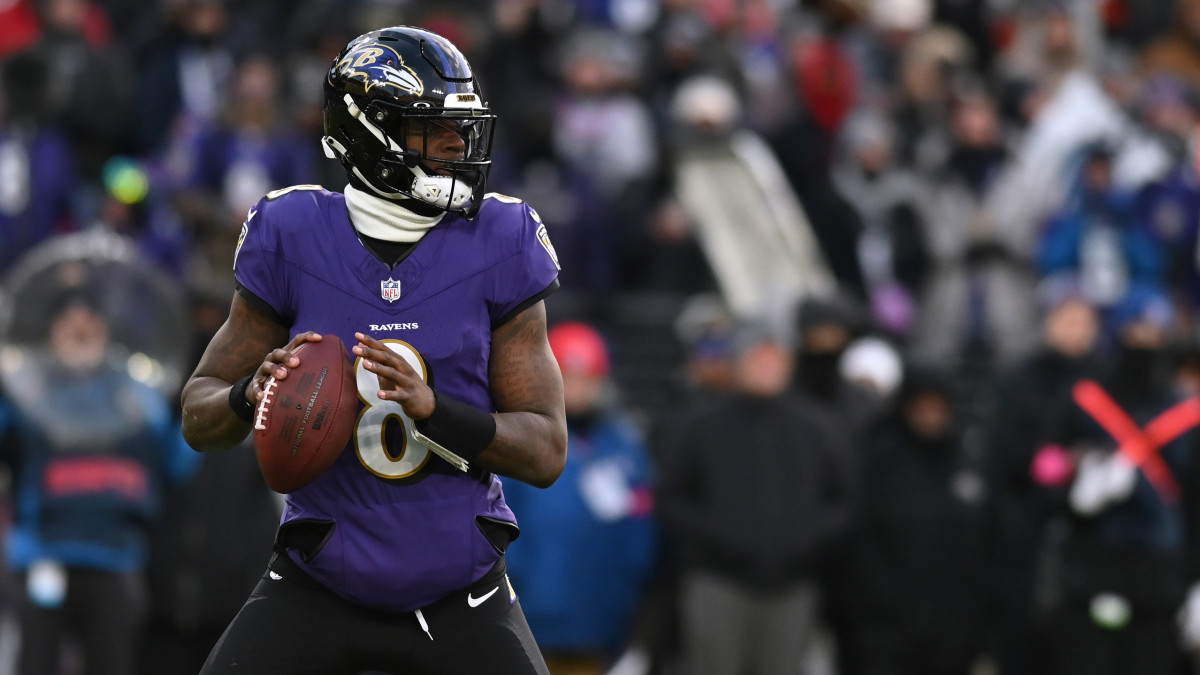
Winner: Baltimore Ravens QB Lamar Jackson (17 votes)
Also receiving votes: San Francisco 49ers RB Christian McCaffrey (6), Kansas City Chiefs QB Patrick Mahomes (5.5), Buffalo Bills QB Josh Allen (.5)
The biggest uptick here is what you’d expect—Mahomes getting a little MVP traction through a year in which he really had none. One NFC exec actually texted with his Mahomes vote, “So I know too much,” referencing how January and February colored the way he looked at the Chiefs QB’s season. In the end, though, with a banged-up and aging Travis Kelce, and a receiver group in flux, he always gave the Chiefs exactly what they needed. Which in a way has made him like Tom Brady (or even Michael Jordan) once was, where he’s important enough to win MVP any year, and the voters just choose which years to give it to him. And that, of course, Jackson withstood all of that and still won anyway is pretty solid validation of how impressive his season was.
Offensive Player of the Year
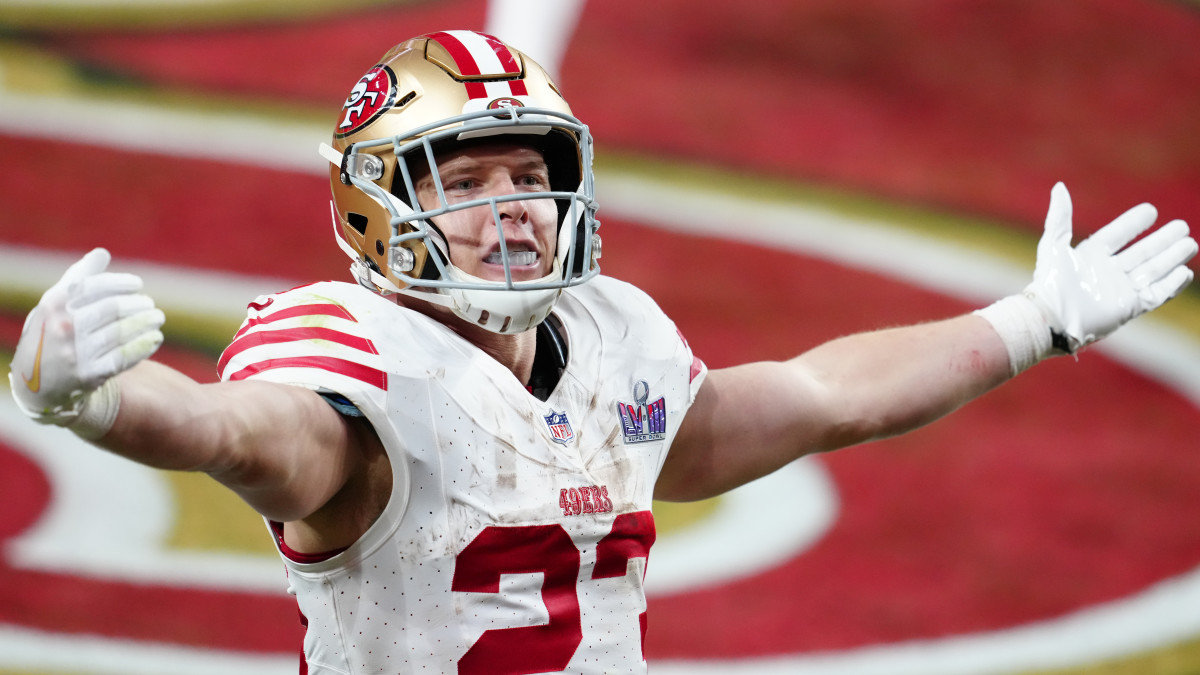
Winner: McCaffrey (11.5 votes)
Also receiving votes: Jackson (9.5 votes), Miami Dolphins WR Tyreek Hill (6 votes), Allen (1), 49ers WR Brandon Aiyuk (1)
The biggest boost here might’ve actually been Jackson’s—which reflects how people don’t exactly know how to vote on this award. Mahomes appeared on six MVP ballots, and on four of them, Jackson was the Offensive Player of the Year. Which, more or less, says to me that the OPOY award was sort of used in those cases to honor the guy who missed out on MVP. And McCaffrey’s win, again, reflects the way a lot of other people approach voting for this one, in casting their ballot for the best non-QB on offense in the NFL. McCaffrey’s case, of course, was only rubber-stamped with what he did in the playoffs, with his value to the 49ers clear right on through the Super Bowl.
Defensive Player of the Year
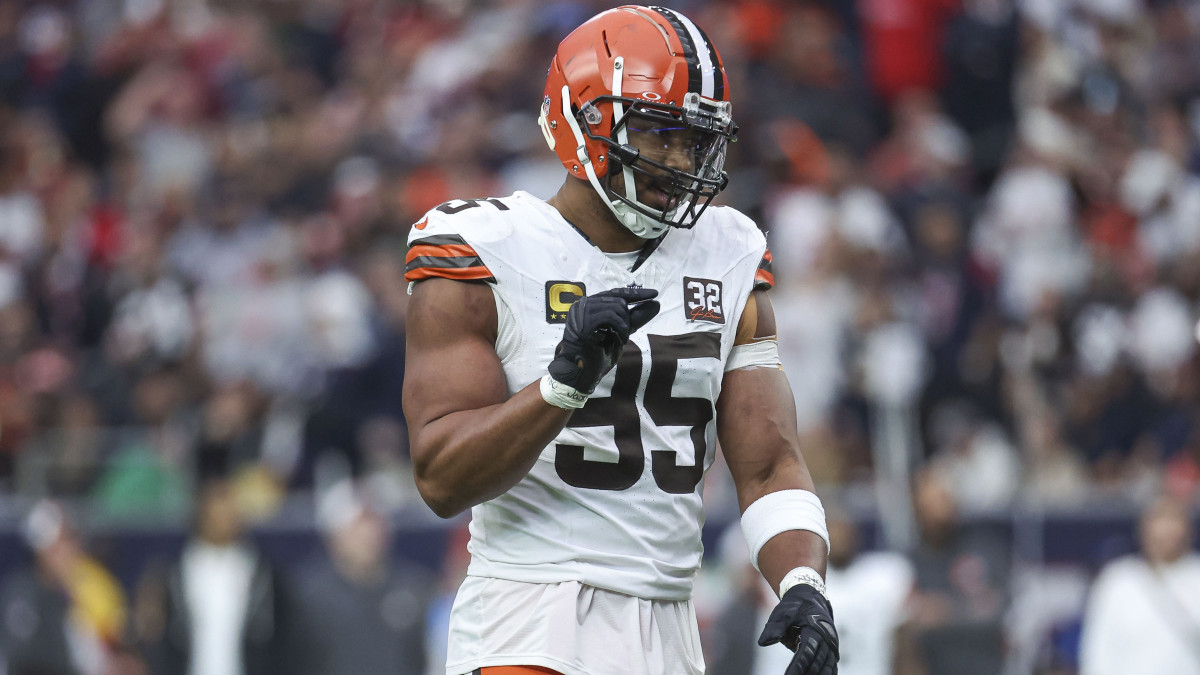
Winner: Cleveland Browns DE Myles Garrett (16 votes)
Also receiving votes: Pittsburgh Steelers OLB T.J. Watt (8 votes), Dallas Cowboys LB Micah Parsons (2 votes), Ravens LB Roquan Smith (2 votes), Chiefs CB L’Jarius Sneed (1 vote)
I don’t think the playoffs affected this one. In fact, as I see it, there’s almost been a waiting room for this award—like T.J. Watt in 2021 or Nick Bosa last year, Garrett had DPOY-worthy years before, and was simply due (which may have separated him in the minds of some voters, subconsciously or otherwise). His eye-popping, 14-sack season complete with the signature game he had (he completely took over against the Indianapolis Colts) made him an easy pick for a lot of voters.
Offensive Rookie of the Year
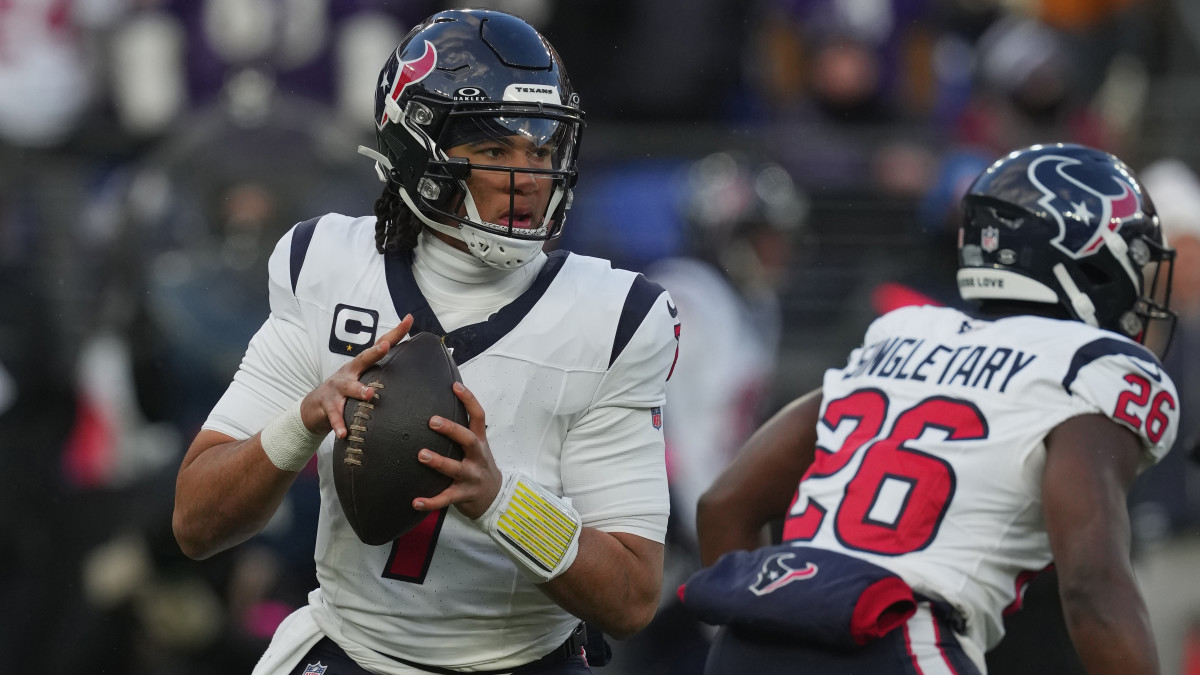
Winner: Houston Texans QB C.J. Stroud (25 votes).
Also receiving votes: Los Angeles Rams WR Puka Nacua (4 votes)
This was as simple after the playoffs as it was before the playoffs. That Stroud played great against the Browns in the wild-card round was nice. But, with all due respect to Nacua, who had a historic season of his own, there isn’t much need to complicate this.
Defensive Rookie of the Year
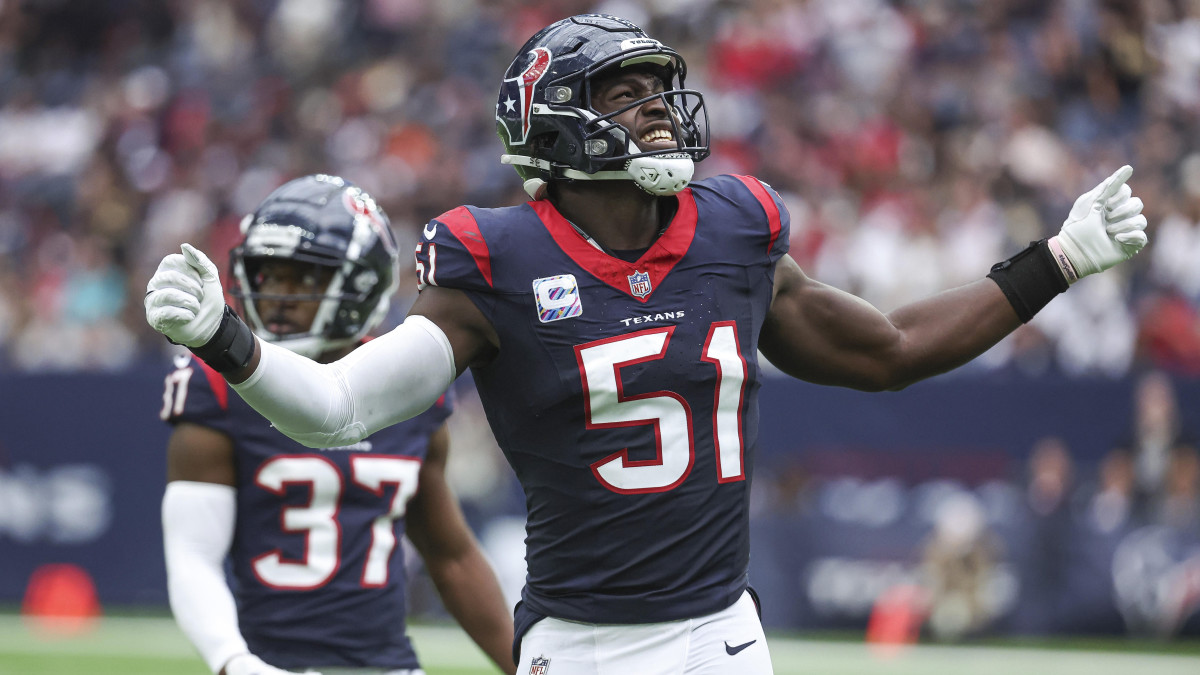
Winner: Texans DE Will Anderson Jr. (10 votes)
Also receiving votes: Philadelphia Eagles DT Jalen Carter (7 votes), Rams DL Kobie Turner (6 votes), Seattle Seahawks CB Devon Witherspoon (4 votes), Los Angeles Chargers OLB Tuli Tuipulotu (1 vote), Rams OLB Byron Young (1 vote)
I sensed voters struggled with this one more than any other. So maybe it makes sense that they went with Anderson, since, among vote-getters, he was on the last team standing. He’s deserving, having had a really nice seven-sack debut season. But it’s not like he was an obvious pick.
Coach of the Year
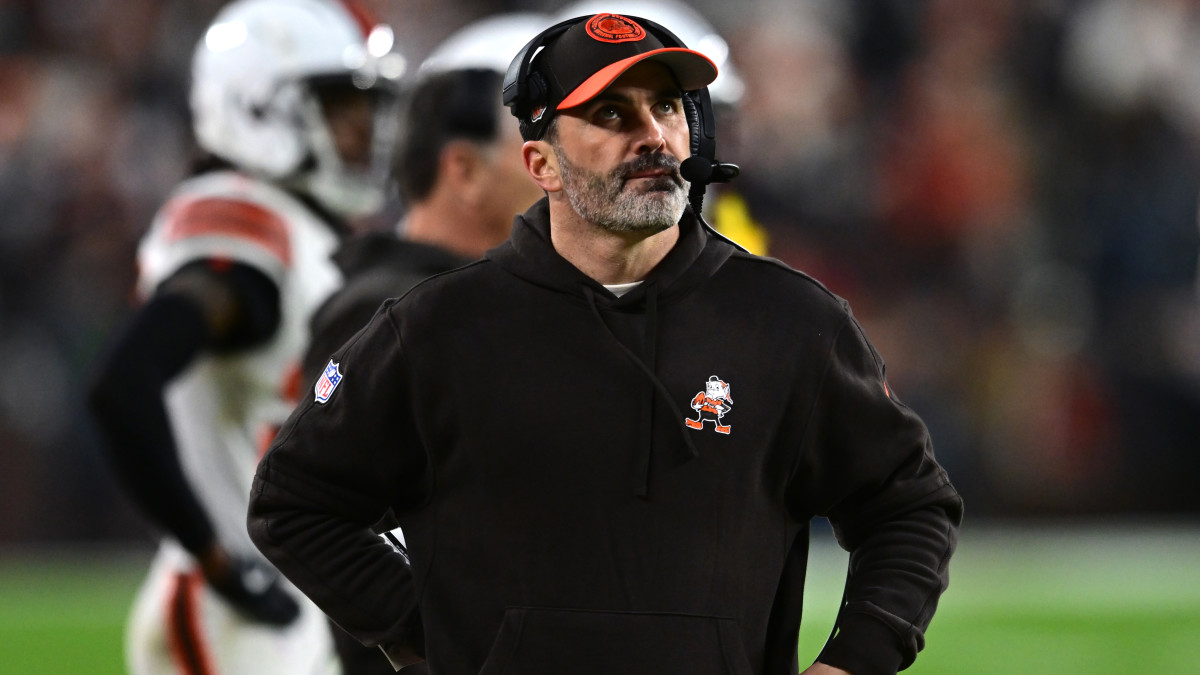
Winner: Kevin Stefanski, Browns (7 votes)
Also receiving votes: Dan Campbell, Detroit Lions (5 votes); DeMeco Ryans, Texans (5 votes); Andy Reid, Chiefs (3 votes); Kyle Shanahan, 49ers (3 votes); John Harbaugh, Ravens (2 votes); Shane Steichen, Colts (2 votes); Matt LaFleur, Green Bay Packers (2 votes)
Cleveland’s unceremonious exit from the playoffs, and the deconstruction of the Browns staff, probably took some of the shine off Stefanski’s candidacy—I think he wins this by a healthy margin if I’m taking the vote on Jan. 8. Still, enough people remember how he won with his fourth and fifth tackles, without Nick Chubb, with four different quarterbacks and an injury-marred secondary to pull this one out (with the playoffs probably helping Reid, Shanahan and LaFleur pick up a little more support than they might’ve had a month ago).
Executive of the Year
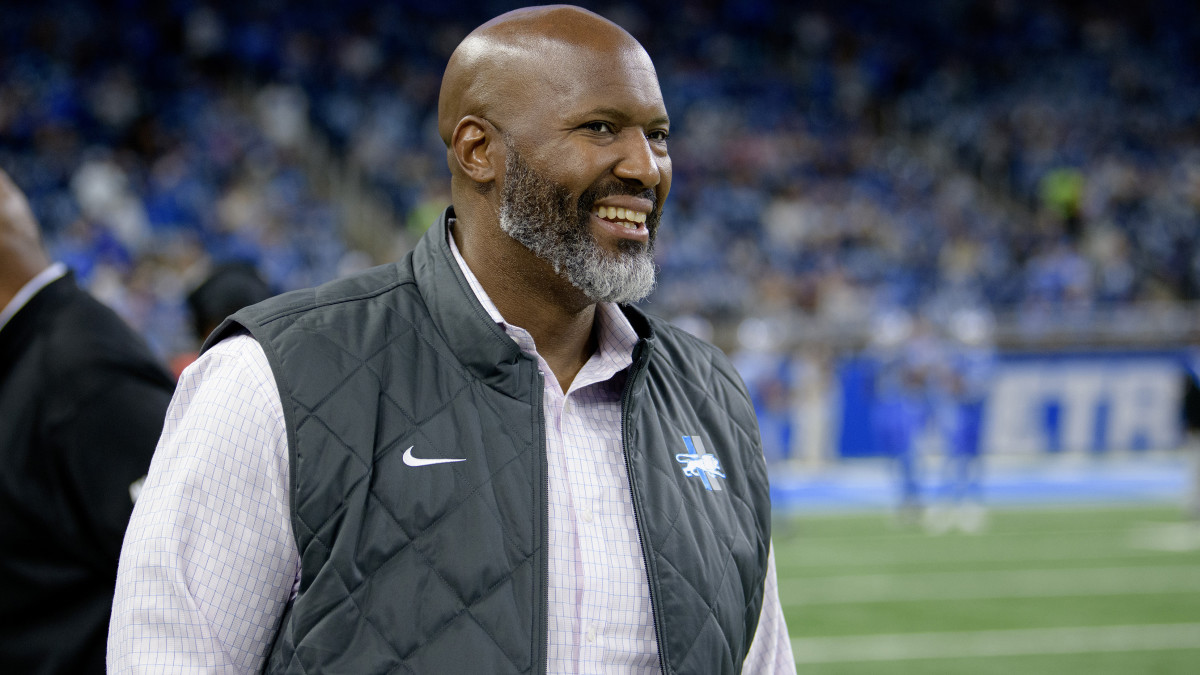
Winner: Brad Holmes, Lions (12 votes)
Also receiving votes: Nick Caserio, Texans (7.5 votes); Andrew Berry, Browns (3.5 votes); Les Snead, Rams (2 votes); Brett Veach, Chiefs (2 votes); Eric DeCosta, Ravens (1 vote); John Lynch, 49ers (1 vote)
This one was wide open at the end of the season. A month later, Holmes is a pretty clear winner, and Caserio is comfortably No. 2—and I do think their teams’ success in the playoffs was a factor. Both squads looked the part in the postseason, and that’s thanks in large part to the rosters that those two executives put together.
